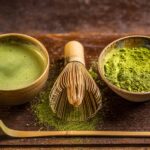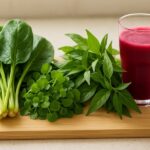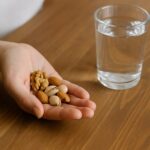Fruits Can Be Healthy… or Harmful – It All Depends on How You Eat Them
Ms. Lan Phuong (36 years old, Hanoi) used to think she was very “healthy” by drinking orange juice and eating watermelon every morning, and then snacking on some durian in the afternoon – after all, they’re all fruits! But after a health check-up, she was shocked to discover elevated liver enzymes, prompting her to reevaluate her overly “healthy” diet.
Many people believe that consuming large quantities of fruit will help detoxify the body and even replace regular meals. However, according to Dr. Do Thi Ngoc Diep, former Director of the Ho Chi Minh City Nutrition Center, eating fruit incorrectly, especially in excessive amounts, can overwork the liver and cause damage. (Source: VnExpress)
Citrus Fruits: Nutritious but Not Meant to Be Eaten in Excess
Oranges, lemons, and grapefruits are rich in vitamin C and antioxidants, making them popular choices. However, consuming too much, especially on an empty stomach or during digestive issues, can irritate the stomach lining due to the presence of citric acid. Additionally, it may stimulate excessive bile secretion from the liver.
According to Dr. Truong Hong Son, Director of the Vietnam Institute of Applied Medicine, as quoted in Vietnamnet: “Daily abuse of orange or grapefruit juice can disrupt the acid-base balance in the body, forcing the liver to work harder to restore equilibrium.”
Recommendation: Limit yourself to a small glass of fresh orange juice without added sugar, preferably after a meal, to reduce the impact on the liver and stomach.
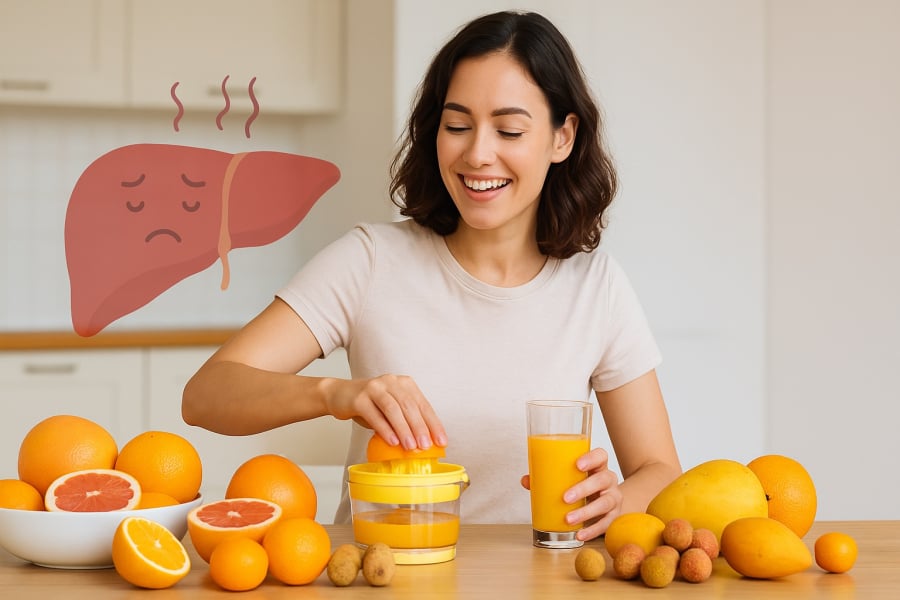
Fruits High in Sugar: Don’t Let the Sweetness Deceive You
Longan, lychee, mango, and jackfruit are beloved by Vietnamese for their sweet taste, but the high fructose content can disrupt liver fat metabolism if consumed regularly in large quantities.
When fructose enters the body, it is primarily metabolized by the liver. Excessive fructose intake can lead to fat accumulation in the liver, eventually resulting in non-alcoholic fatty liver disease, a condition that is becoming increasingly prevalent in Vietnam.
For individuals with liver issues such as fatty liver or metabolic disorders, Dr. Tran Quoc Khanh from Vietnam-Germany Hospital recommends avoiding overly sweet fruits. Instead, opt for fruits with lower sugar content, such as white dragon fruit, kiwi, or strawberries, to reduce the burden on the liver.
Spoiled Fruits: The Silent Liver Toxin
Many people have the habit of eating fruits that have been stored for a long time, sometimes cutting off the moldy parts and consuming the seemingly fresh portions. This is an extremely dangerous practice!
Mold often produces aflatoxin, a potent liver carcinogen. This toxin is not destroyed by normal temperatures and can remain even when the outer part of the fruit appears edible.
According to the World Health Organization (WHO), aflatoxin is one of the leading causes of liver cancer in Southeast Asia, where food preservation conditions are often suboptimal.
Recommendation: Fruits should be consumed within 1-2 days of ripening to avoid accumulation of toxins. Any signs of mold, slime, or unusual odors indicate that the fruit should be discarded, not consumed.
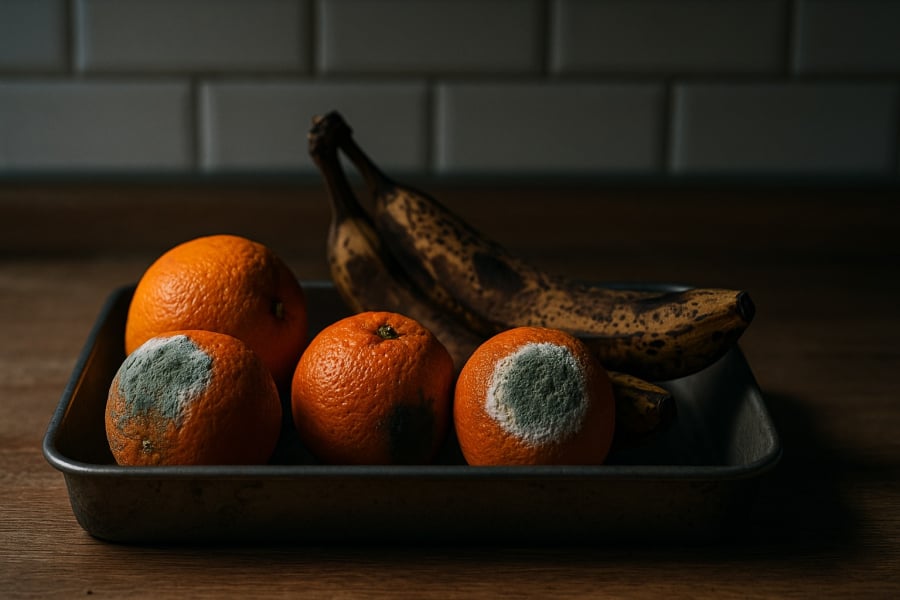
Fruits High in Fat: A Sweet Danger for Those with Liver Issues
Durian, avocado, and coconut are high in plant-based fats. While the unsaturated fat in avocado can be beneficial for cardiovascular health in moderation, overconsumption, especially for those with liver problems, can have adverse effects.
Durian, in particular, is not only high in fat but also in sugar – a double whammy for the liver, which has to work harder to metabolize both.
If you are undergoing treatment for elevated liver enzymes, fatty liver, or viral hepatitis, it is advisable to exercise caution when consuming these fruits on a regular basis.
Conclusion: Loving Fruit Is Good, but Do It Wisely
There’s no denying that fruit is a precious gift from nature. However, everything should be enjoyed in moderation. The liver is a vital yet silent organ, and our daily habits can either support or undermine its function.
Listen to your body, understand the unique characteristics of different fruits, and practice moderation – that’s the key to safeguarding your health from the ground up.
3 Natural “Treasures” That Protect Your Liver and Gut – Doctor’s Advice for Daily Use
The liver and gut are two unsung heroes of our body, playing a crucial role in maintaining optimal health. Uncover three natural treasures that can help protect these vital organs daily, as revealed by a US digestive health specialist. These simple and effective strategies are easy to incorporate into your routine and promise surprising results.

























